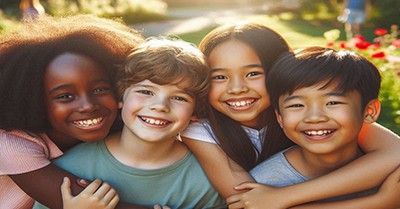EYLF Outcome 2 focuses on children being connected with and contributing to their world. It emphasizes fostering a sense of belonging, respect for diversity, and social responsibility. The following article provides information on the Definition Of Sub Outcomes, Practical Examples Of Sub Outcomes, Applying Sub Outcomes InTo Practice and more.
Definition Of Sub Outcomes
-
Children Develop a Sense of Belonging to Groups and Communities
-
Babies and young children begin to recognize familiar people, environments, and routines that support their sense of belonging.
-
Educators can reinforce this by using consistent caregiving practices and encouraging interactions with others.
-
-
Children Respond to Diversity with Respect
-
Encouraging babies to engage with different cultural experiences, materials, and interactions to build their awareness of diversity.
-
Simple activities like introducing songs, books, and sensory play from diverse backgrounds can support this.
-
-
Children Become Aware of Fairness
-
Babies start developing early social skills by observing interactions and learning about fairness through shared experiences.
-
Educators can model respectful interactions and encourage turn-taking in play settings.
-
-
Children Become Socially Responsible and Show Respect for the Environment
-
Babies develop early connections with their surroundings, such as engaging with nature, observing animals, or participating in simple sustainability practices like using natural materials.
-
Gentle guidance in handling objects carefully and exploring outdoor spaces promotes respect for the environment.
-
Practical Examples Of Sub Outcomes
-
Recognizing familiar educators, responding to greetings, and engaging in routine activities like mealtimes.
-
Participating in group play, recognizing their role in routines, and showing comfort in familiar spaces.
-
Engaging in collaborative activities like setting the table for lunch or helping younger peers builds social connections.
Responding to Diversity with Respect
- Exploring books, songs, and sensory materials from various cultures to foster early awareness of diversity.
-
Engaging in play with dolls of different skin tones or participating in cultural celebrations through storytelling and music.
-
Learning about different traditions through cooking activities, dress-up play, and group discussions about cultural symbols.
3. Awareness of Fairness
-
Educators model fairness by ensuring each child receives equal attention and comfort.
-
Learning early turn-taking skills through shared toys or sensory play activities.
-
Developing an understanding of fairness by negotiating rules in group games and discussions on kindness and inclusivity.
4. Social Responsibility and Respect for the Environment
-
Engaging in nature-based play, feeling textures of leaves, grass, or sand to develop early respect for their surroundings.
-
Participating in simple sustainable practices, such as watering plants or using natural materials in creative projects.
-
Learning about recycling and caring for the environment through hands-on activities like sorting waste or gardening projects.
